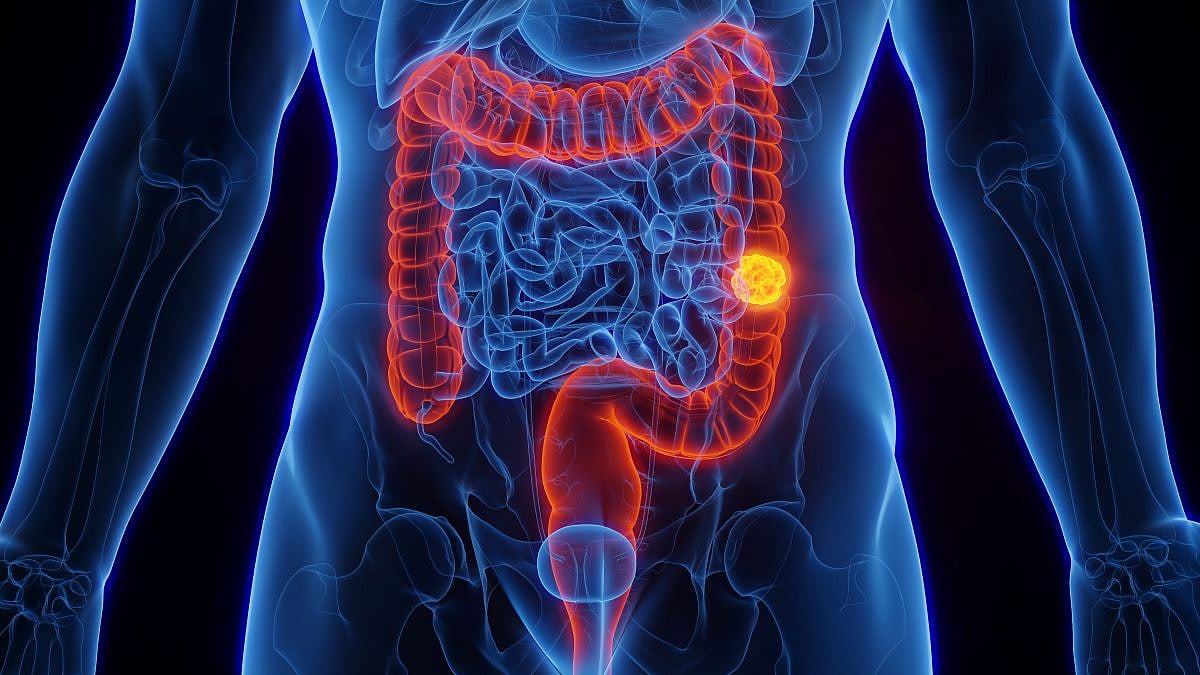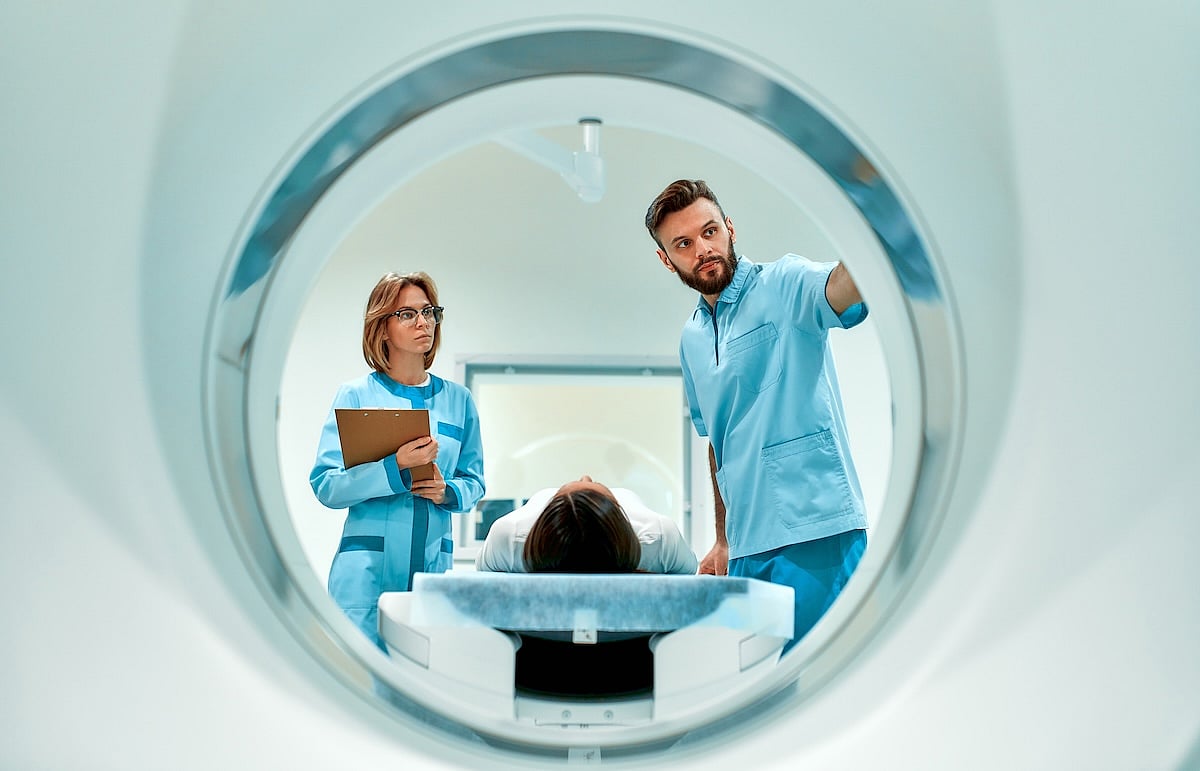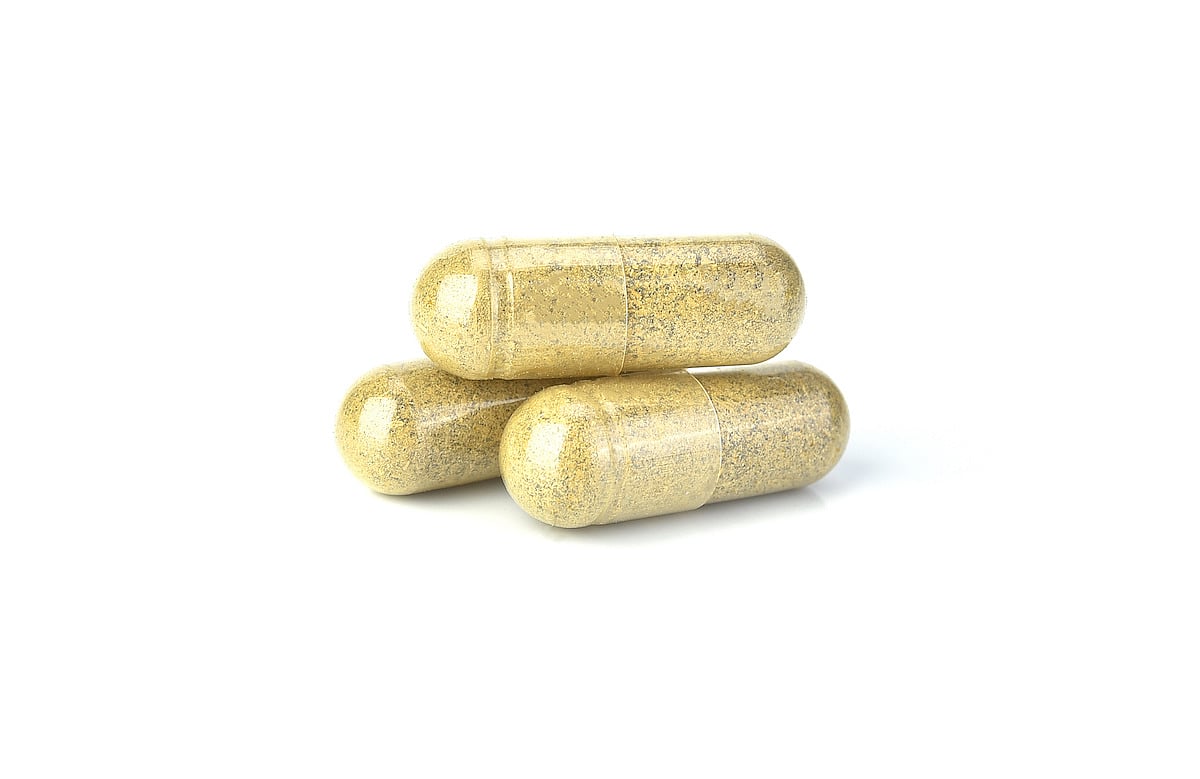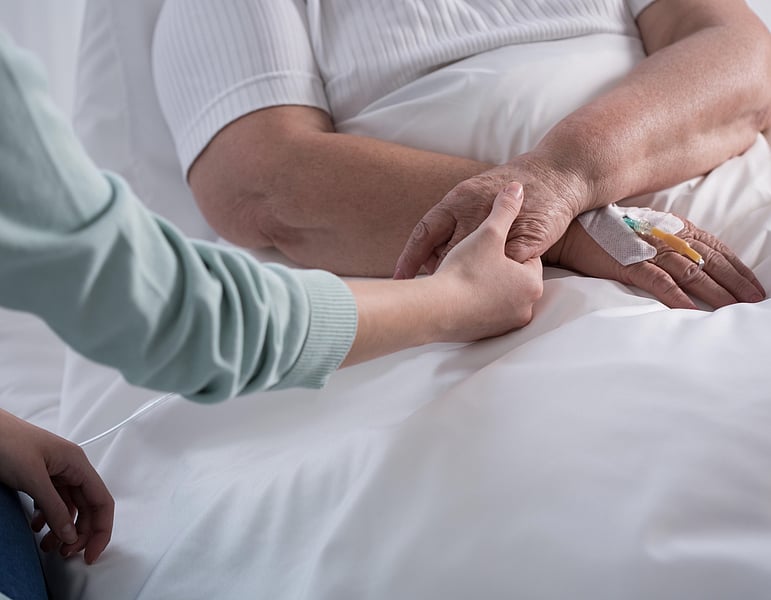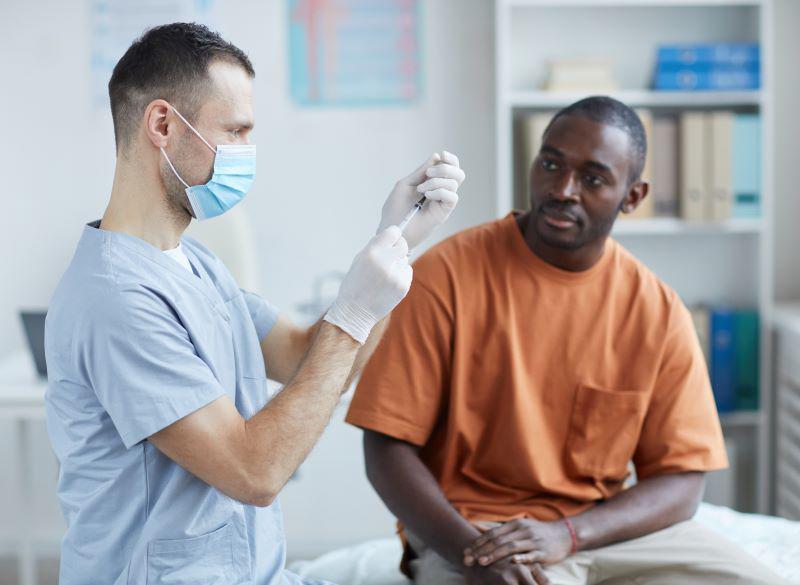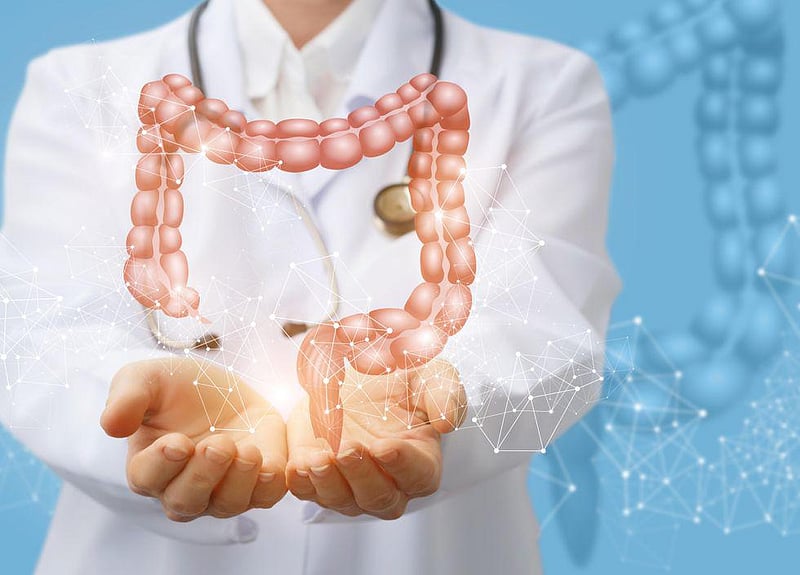Patient Resources
Get Healthy!
Results for search "Cancer: Rectal".
30 May
GLP-1 Weight Loss Drugs May Lower the Risk for 14 Obesity-Related Cancers
A new study finds women taking GLP-1 Receptor agonists were significantly less likely to develop obesity-related cancers.
24 Mar
Colon Cancer is on the Rise in Young Adults. What You Need to Know.
HealthDay talks with Dr. Jennifer Davids, Chief of Colon and Rectal Surgery at Boston Medical Center.
Health News Results - 22
Rectal Bleeding: Is It Hemorrhoids or Cancer?
- Richard Wender, MD, Professor and Chair, Family Medicine and Community Health, Perelman School of Medicine and Michael Sapienza, CEO of the Colorectal Cancer Alliance HealthDay Reporters
- December 3, 2025
- Full Page
Hemorrhoids are a common condition that affects about half of all people by age fifty.
Although hemorrhoids are usually harmless, some worry that they may be a sign of cancer. While certain symptoms of hemorrhoids,
Bleeding Tied To Colon Cancer Risk Among Young Adults
- Dennis Thompson HealthDay Reporter
- October 8, 2025
- Full Page
Rectal bleeding could be a powerful early warning sign of colon cancer among younger adults, a new study says.
Such bleeding increased more than eightfold the ...
Weight-Loss Drugs May Lower Risk Of Obesity-Related Cancers
- HealthDay Reporter
- Dennis Thompson
- May 28, 2025
- Full Page
Popular GLP-1 weight loss drugs like Ozempic and Zepbound can help reduce a woman’s risk for as many as 14 cancers associated wi...
MRI Might Spare Rectal Cancer Patients Surgery and Colostomy
- HealthDay Reporter
- Ernie Mundell
- October 23, 2024
- Full Page
Some rectal cancer patients might be spared surgery and the lifelong need for a colostomy bag if they undergo MRI screening, a new study finds.
The scans might accurately predict which patients have a higher odds for cancer recurrence and require surgery plus chemotherap...
New Approach Helps More People With Rectal Cancers Avoid Surgery
- HealthDay Reporter
- Ernie Mundell
- August 26, 2024
- Full Page
Giving chemo and radiation therapies before a surgery for rectal cancer can help eliminate the need for removal of the rectum altogether, a new Swedish study finds.
“If the tumor disappears completely during treatment, surgery is not required," said study...
Chinese Botanical Medicine Eases a Cancer Treatment Side Effect
- HealthDay Reporter
- Dennis Thompson
- August 13, 2024
- Full Page
An experimental drug based on ancient Chinese herbal medicine can help ease the toxic side effects of chemotherapy and radiation therapy in cancer p...
New Treatment Approach Good News for People Battling Rectal Cancers
- HealthDay Reporter
- Ernie Mundell
- February 5, 2024
- Full Page
Rectal cancer often involves surgeries that can lead to a debilitating loss of bowel function for patients.
However, new research suggests that a less aggressive approach to treating the disease has helped an increasing number of patients avoid these surgeries.
Tha...
Can Some Cancer Patients Safely Skip Radiation Therapy? New Studies Say Yes
- HealthDay Reporter
- Dennis Thompson
- June 6, 2023
- Full Page
Radiation therapy might not be necessary in treating some forms of rectal cancer and lymphoma, sparing patients from the toxic treatment, a pair of new clinical trials shows.
One trial found that rectal cancer patients whose tumors shrink in response to chemotherapy can ...
More Evidence That Obesity Raises Odds for Gastrointestinal Cancers
- HealthDay Reporter
- Cara Murez
- May 12, 2023
- Full Page
Maintaining a healthy weight may be important for reducing the risk of gastrointestinal cancer, a new study suggests.
The research adds to the evidence that excess weight and weight increases in adulthood increase the risk for colon and other gastrointestinal (GI) cance...
In Small Study, New Treatment Brings Remission of Rectal Cancer in All Patients
- HealthDay Reporter
- Robert Preidt
- June 6, 2022
- Full Page
A small study delivers startling results on the power of a new immunotherapy treatment against rectal cancer: The drug triggered remission in all the patients who got it.
...
Shedding Pounds Might Help Stop Pre-Cancerous Colon Polyps
- HealthDay Reporter
- Cara Murez
- February 1, 2022
- Full Page
Colon cancer rates are increasing for younger Americans, along with rates of obesity. Could slimming down reduce young people's risk for malignancy?
A new study suggests that even a small amount of weight loss may cut your odds for benign growths in the colon known as ad...
Late-Stage Colon Cancers Increasing Among Young Americans
- HealthDay Reporter
- Amy Norton
- January 31, 2022
- Full Page
Yet another study is chipping away at the idea that colon and rectal cancers are diseases of older age: In the past couple decades, Americans younger than 40 have shown the steepest rise in advanced cases of these cancers.
The research adds to evidence of a disturbing, a...
Most Americans Don't Know Alcohol Can Raise Cancer Risk
- HealthDay Reporter
- Robert Preidt
- January 31, 2022
- Full Page
Most American adults don't know that alcohol boosts cancer risk, but a majority support steps to increase awareness of the link, a new nationwide survey shows.
""It is important that people are made fully aware of the potential harms of alcohol so that they may make info...
Supplements: Many Cancer Patients Think They'll Help, But Experts Urge Caution
- HealthDay Reporter
- Steven Reinberg
- December 20, 2021
- Full Page
Many cancer patients take dietary supplements in hopes of keeping their disease at bay, but British researchers say there's little evidence it will pay off.
In fact, they add, supplements may not only be ineffective, but harmful as well.
"We found 1 in 5 peopl...
HPV Vaccine Is Reducing Cervical Cancers in Teens, Young Women
- HealthDay Reporter
- Dennis Thompson
- November 30, 2021
- Full Page
The first wave of girls to receive the HPV vaccine are much less likely to contract or die from cervical cancer than women just a few years older, a new study reports.
Nearly all cases of cervical cancer are caused by human papillomavirus (HPV), for which a vaccine has b...
Clinical Trials Are Becoming More Diverse, But There's Still Work To Do
- HealthDay Reporter
- Robert Preidt
- November 30, 2021
- Full Page
U.S. cancer clinical trial participants have become more diverse in makeup, but certain groups remain underrepresented, a new study finds.
It's important to have a wide range of participants in clinical trials, to find out if treatments are safe and effective for people ...
Younger Age Doesn't Boost Survival With Advanced Colon Cancer
- HealthDay Reporter
- Robert Preidt
- October 28, 2021
- Full Page
Younger patients with advanced colon cancer don't live longer than older patients, but it's unclear why, researchers say.
The authors of the new study said they were surprised by the findings, which come as colon cancer rates are on the rise among young Americans.
...
Too Little Vitamin D Could Raise Colon Cancer Risk in Black Women
- HealthDay Reporter
- Robert Preidt
- October 27, 2021
- Full Page
Black American women with low levels of vitamin D have higher odds of developing colon cancer, according to a new research that echoes previous findings in white women.
Researchers used a vitamin D prediction model for nearly 50,000 participants in the Black Women's Heal...
Could a Japanese Plant Turn Cold Cuts Into Healthy Fare?
- HealthDay Reporter
- Steven Reinberg
- September 24, 2021
- Full Page
There's good news for health-conscious sausage and bacon lovers.
A new study suggests the Japanese knotweed plant could be used to make healthier cured meats.
According to researchers, this fast-growing plant that invades gardens and buildings contains a chemical t...
Too Many Antibiotics Might Raise Colon Cancer Risk
- HealthDay Reporter
- Robert Preidt
- September 2, 2021
- Full Page
Here's another reason to avoid unnecessary use of antibiotics: Long-term use of these medications could increase your risk of colon cancer, researchers say.
"While in many cases antibiotic therapy is necessary and saves lives, in the event of less serious ailments that c...
Vitamin D Might Help Prevent Early-Onset Colon Cancer
- HealthDay Reporter
- Robert Preidt
- August 18, 2021
- Full Page
Foods rich in vitamin D may help protect younger adults against colon cancer, researchers report.
While colon cancer is decreasing overall, cases among younger adults have been on the rise. The trends dovetail with a decline in vitamin D intake from foods such as fish, m...
Immune-Based Therapy May Help Some Battling Advanced Colon Cancers
- HealthDay Reporter
- Robert Preidt
- August 11, 2021
- Full Page
Immunotherapy helped extend the lives of some patients with the most common type of advanced colon cancer, researchers report.
The new findings are important, they noted, because immunotherapy doesn't typically work against microsatellite stable (MSS) colon cancer. These...


